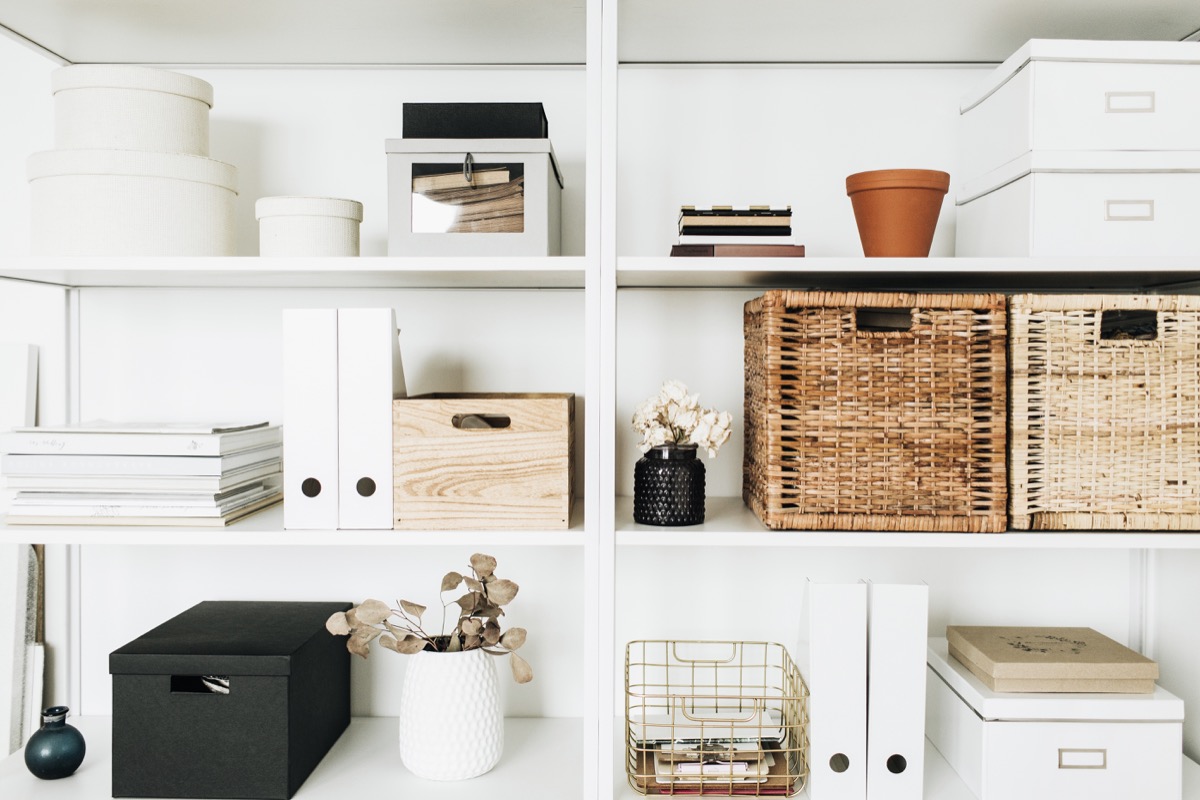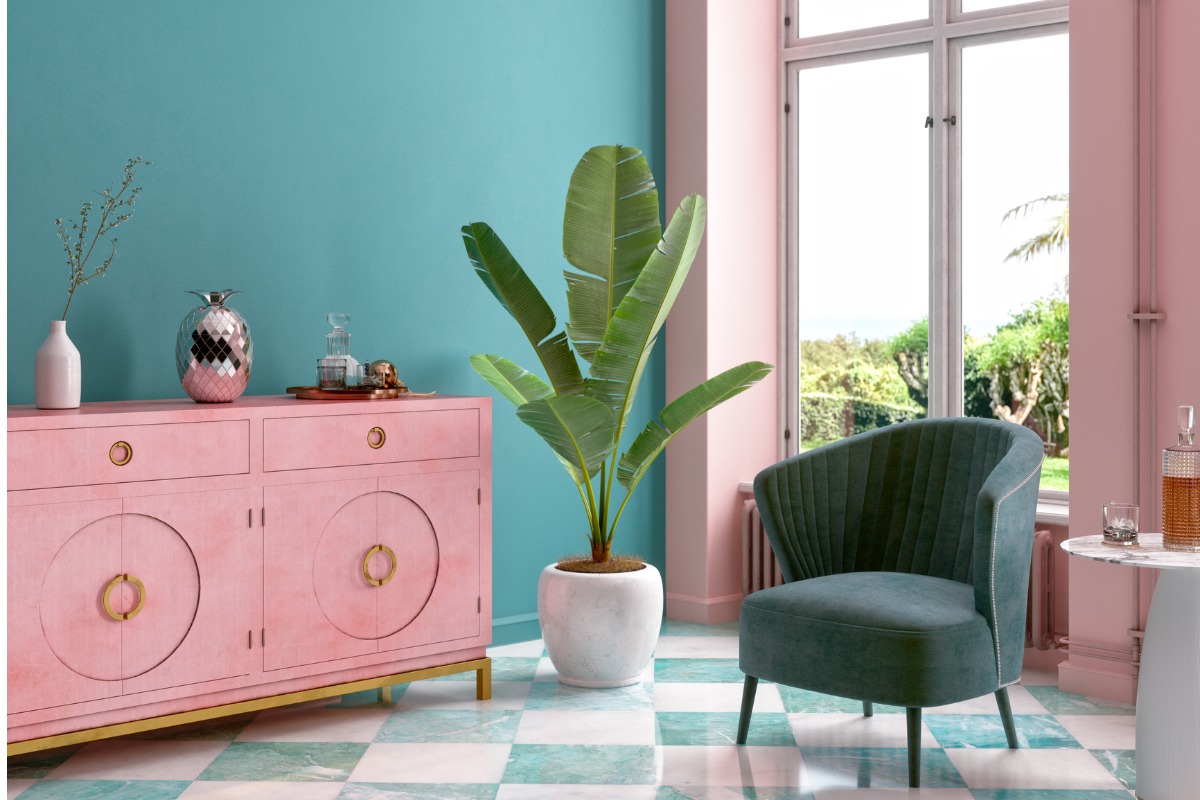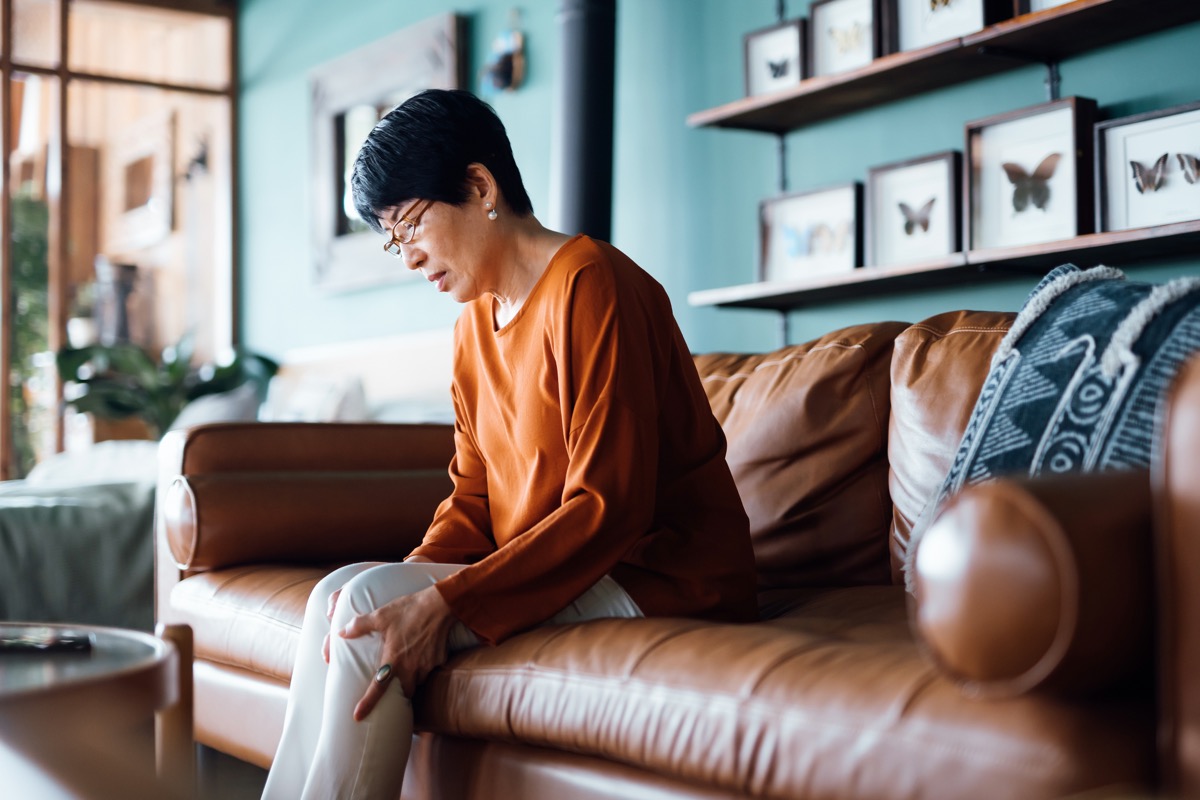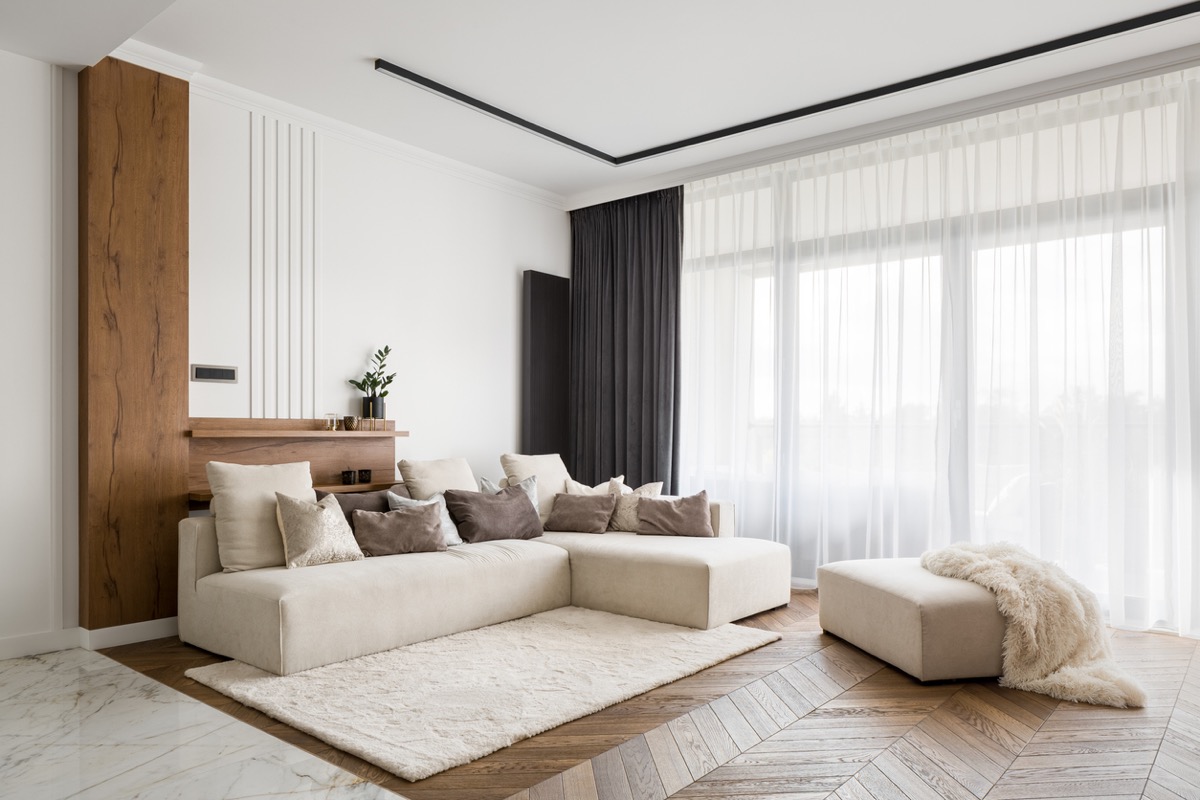7 Home Design Choices That Bring Down Your Mood

Making the right home design choices can help you feel perfectly at peace in your everyday environment. And since many Americans spend more time at home now than ever before, this can have a tremendous impact on your mood and well-being. In fact, both mental health experts and interior designers agree that there are a few key mistakes people make that can negatively affect your state of mind. Read on to learn the seven home design choices that could bring down your mood—and how to fix them.
RELATED: 6 Paint Colors That Will Boost Your Mood, According to Experts.
1
You have a lack of natural light.

Having regular access to natural light helps to set your circadian rhythm, which can in turn impact your mood, sleep patterns, and broader health, studies show. If your home lacks sources of natural light, you may find your happiness and energy levels in decline.
“Insufficient natural light in a space can have a negative impact on your mood,” explains Kentucky-based psychologist Nick Bach, PsyD. “Dimly lit rooms can make you feel tired and lethargic and even lead to symptoms of seasonal affective disorder (SAD). It is important to maximize natural light by keeping windows unobstructed and using light-colored window treatments.”
However, even those among us without floor-to-ceiling windows can get a little help from the right decorative lighting. “Too much light can be harsh and overwhelming, while too little light can cause feelings of depression. To strike the right balance, you should experiment with different kinds of bulbs and lighting fixtures to find what works best for you,” says Ryan Hetrick, CEO of Epiphany Wellness.
RELATED: 5 Reasons Mowing Your Lawn Makes You Happy, According to Science.
2
You have inadequate storage.

When your home is a mess, it can have a profound effect on your mood, mental health experts say. However, many reject the notion that to be happy you need to get rid of all of your belongings. The key, they say, is for everything to have a purpose and a place. By designing your home with adequate storage, you can ensure that this is possible.
“Clutter makes your home feel chaotic and stressful, turning it into a visually and emotionally unappealing, mentally uncomfortable, and physically inconvenient environment that can ruin your mood in seconds,” says Veronica Hlivnenko, a psychologist and holistic health counselor who works with InPulse. “As many people are bothered by mess, clutter can trigger the body to produce the stress hormone cortisol and induce anxiety and irritability. Untidy surroundings are disorienting, reduce your focus and productivity, provoke procrastination, and elevate fatigue.”
RELATED: 9 Houseplants That Will Help You Breathe Better.
3
You have displeasing color schemes or patterns.

The colors and patterns on your walls and furniture can greatly influence your mood. “Research has shown that bright colors can bring energy to a space, while muted tones convey restfulness. Choosing the right balance between bold and calming colors can help improve mental wellness by creating an atmosphere that fosters relaxation or motivation,” Hetrick tells Best Life.
Molly Cody, an interior designer and the founder and owner of Cody Residential, agrees that a balanced color scheme is key. “I am a huge advocate for moody interiors but in certain spaces with low lighting it’s important to note how you feel entering the space,” she says. “For example, a client recently replaced light sofas with a dark leather one and was feeling uneasy in her space. We realized there needed to be a better balance between light and dark, so we updated her curtains and added a lighter rug, which shifted the entire feel of the room.”
RELATED: 5 Ways to Create a Cozy Reading Nook You’ll Never Want to Leave.
4
You have uncomfortable furniture.

Furniture should serve a dual purpose of being both aesthetically pleasing and comfortable. “Uncomfortable furniture can cause both physical and mental discomfort,” says Hlivenko. She notes that the wrong furniture can make your space feel unwelcoming, unfriendly, unresponsive to your needs, and un-conducive to your desired lifestyle.
Jacky Chou, principal and director at the architecture and home decor site Archute, agrees that comfort is essential: “If your furniture is too hard, soft, big, small, high, or low for you and your body type, you might feel uncomfortable physically and emotionally. So try to choose furniture that fits your size, shape, and preferences. You can also add some cushions, throws, or blankets to make your furniture more cozy and inviting.”
RELATED: 8 Easy Ways to Make Your Bedroom Feel Like a Luxe Hotel, Experts Say.
5
Your home has a poor flow or layout.

How you arrange your furniture is just as crucial to your mood as picking the right pieces.
“Furniture that is not arranged properly can disrupt the flow and functionality of a room. It can make the space feel cramped and uncomfortable,” explains Bach. “Ensuring that furniture is placed in a way that allows for easy movement and creates a balanced and harmonious layout can greatly improve your mood.”
Cody notes that this commonly occurs when people have lived in a space for an extended period of time. “We tend to move things around and stop considering how we naturally flow in the room, creating a choppy feel which starts to feel cramped and less breathable,” she says.
RELATED: 7 Ways to Be More Productive in Your Home Office, Experts Say.
6
Your home lacks personalization.

Your home should be a reflection of you. If it isn’t, the sterility of your everyday environment can take a toll on your mood and mental health.
“A home that lacks personal touches and [doesn’t] reflect your individuality can make you feel disconnected and uninspired,” says Bach. “Surrounding yourself with meaningful items… can create a sense of belonging and happiness. Remember, everyone’s preferences and sensitivities are different, so it’s essential to create a space that aligns with your unique needs and tastes.”
Hlivenko recommends filling your home with family photos, souvenirs from your travels, decor items related to your interests or hobbies, your favorite books, and artwork that you find moving or meaningful.
For more home decor tips sent directly to your inbox, sign up for our daily newsletter.
7
Your plants are dying.

Including natural elements in your home design can make you feel at one with your environment, ultimately boosting your mood. In particular, integrating plants can beautify your home, adding color and vitality to your decor.
“They purify the air, reduce stress, and create a sense of calm,” says Chou. However, he notes that if your plants are dying, wilting, or infested with pests, they can have the opposite effect.
“They can make you feel guilty, frustrated, or sad—so make sure you choose plants that suit your home’s conditions, such as light, humidity, and temperature. You can also research how to care for your plants properly, such as watering, pruning, and fertilizing them,” he recommends.